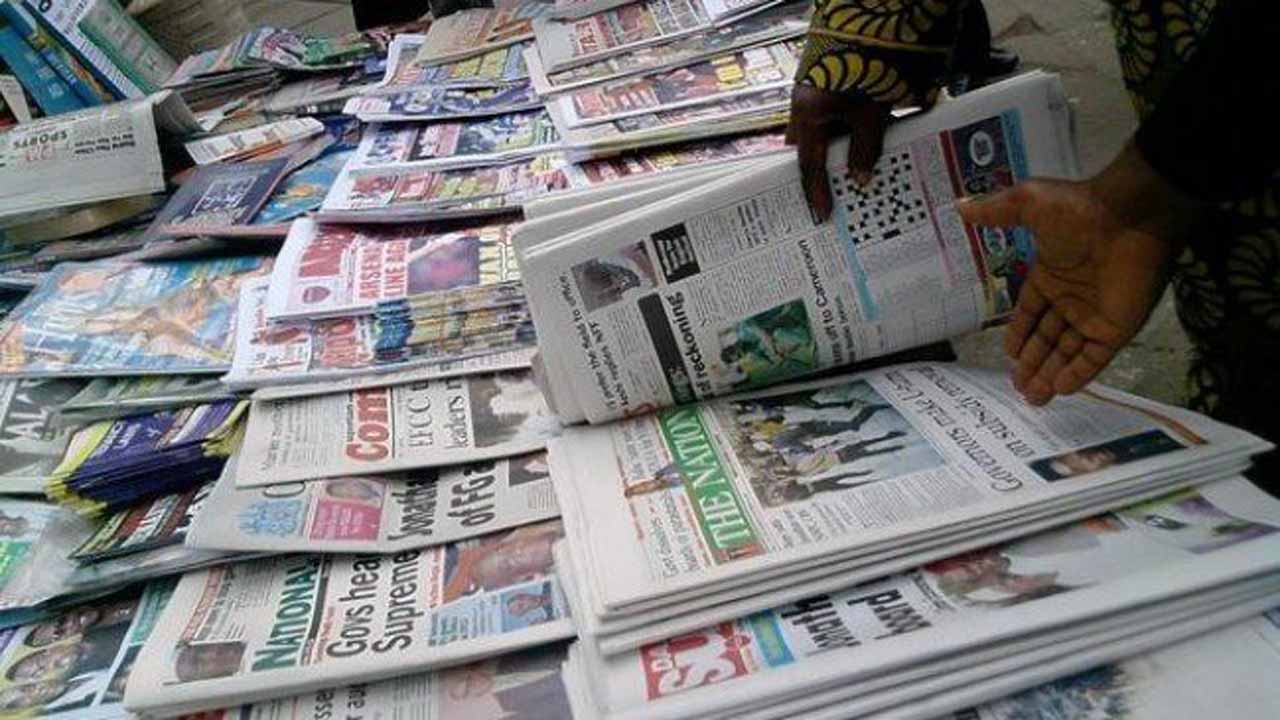 There have been increasing concerns about the future of print media in Nigeria. The mounting worries also rubbish claims that business losses in the sector are largely due to the global pandemic. Victor Ifijeh, seasoned journalist, reportedly laments, “To say that the print is seriously challenged is an understatement. To say that it is in decline is putting it mildly. In the words of a commentator, the print media is dying slowly.” For Bayo Onanuga, another industry veteran, the emergence of digital media disrupted and drastically decreased the value of print editions. “Globally, newspapers in print are becoming anachronistic and with the way technology is driving the industry, many journalists will soon be jobless, if they do not adapt quickly to the phenomenally changing environment,” Onanuga recently opines.
There have been increasing concerns about the future of print media in Nigeria. The mounting worries also rubbish claims that business losses in the sector are largely due to the global pandemic. Victor Ifijeh, seasoned journalist, reportedly laments, “To say that the print is seriously challenged is an understatement. To say that it is in decline is putting it mildly. In the words of a commentator, the print media is dying slowly.” For Bayo Onanuga, another industry veteran, the emergence of digital media disrupted and drastically decreased the value of print editions. “Globally, newspapers in print are becoming anachronistic and with the way technology is driving the industry, many journalists will soon be jobless, if they do not adapt quickly to the phenomenally changing environment,” Onanuga recently opines.
Reuben Abati, veteran columnist, attributed print media survival challenges to declining advertisement and readership. “Given the poor state of the economy, many businesses have had to cut down the amount that they spend on newspaper advertising and rationalize the options available to them in terms of reach and impact. Government departments and civil servants of old who used to buy newspapers have had to cut their budgets for such purpose. Circulation figures have therefore dropped,” Abati, stresses, in a recent post in ThisDay.
As experts predicted, many practitioners, in print edition space, in Nigeria, have lost or are at the verge of losing their jobs, mostly through no fault of their own. According to Adekunle Samuel Ayeni, CEO, BHM Group, “…tabloid journalist earns less than $100 per month, where most newspapers owe up to six months’ salaries, and TV stations pay tokens for wages…” Femi Soneye, Publisher, Persecondnews, also reportedly notes, “the parlous state of the economy had caused thousands of journalists to lose their jobs due to permanent shut down of their organisations, while others are being owed one or two years salaries.” A recent online report, further stresses, “As we speak, the industry and practitioners are facing a different kind of torture. This time around, not by any political office holder, but by a looming recession that has befallen the industry….”
Regrettably, some print media owners and practitioners in Nigeria, perhaps to stay afloat are accused of engaging in unethical practices, including cutting corners on due diligence as well as setting unrealistic revenue targets for their marketing teams. “But to keep ad money coming, some outlets have had to develop political affiliations and connections with companies and other interest groups. This guarantees a steady stream of revenue but at the cost of editorial independence,” notes a report, recently published in techcabal. Ayeni, cited above, agrees, “The media scene is a mess and the public relations industry in Nigeria is a beneficiary. Driven by a news conference and press release culture, PR pros in these parts have mastered how to speak the language of envelopes. For decades, they have connived with poorly remunerated reporters and struggling publishers to fill papers and magazines with promotional content that scarcely catches the interest of the readers.”
The increasing job losses are clearly a global phenomenon but the challenges, in advanced economies, are largely attributed to recent outbreak of Covid-19 pandemic. In the UK, Press Gazette recently reports, “News publishers have been furloughing staff, cutting wages and suspending print titles to cope with collapsing advertising and print sale revenues brought on by the pandemic.” A report, cited in Pew Research Centre, also partly reads, “Layoffs continue to pummel U.S. newspapers. Roughly a quarter (27%) of papers with an average Sunday circulation of 50,000 or more experienced layoffs…”
But, the good news coming from advanced economies is that print media are now seeing appreciable success in their subscription model. There is equally clear-cut commitment by government, individuals and corporate organisations to sustain some of the platforms. In the US, Rick Edmonds, media business analyst, notes in Poynter, “After years of hesitation about whether journalism merited support, community foundations are beginning to team up with big national out fits like the Knight Foundation and Lanfest with grant to bolster coverage. For-profit papers are among the recipients.” Edmonds also recalls that The Stranger, a weekly in Seattle, received donations, ranging from $3 to $10,000, after an urgent plea to the public to keep its print edition alive. The Fund for Investigative Journalism, Fundacion Gabo, Facebook Journalism Project are reportedly some of the opportunities created by corporate bodies to help in alleviating financial pressures on media organisations and practitioners.
The Nigerian government is equally offering to salvage the print media sector. However, the proposed gesture might be described as a flicker of hope. Lai Mohammed, Minister of Information and Culture, reportedly assures, “I have been in contact with leadership of newspapers to get a solution to the ailing economy of the newspapers and the entire media industry. Mohammed also maintains, “As soon as we get the terms of reference, we would announce the membership and the terms of reference.” The leadership of Central Bank of Nigeria, CBN, in recent tweets, also calls on banks operating in the country to disburse loans to the media to help them in averting the spate of job losses already being recorded amongst journalists.
Meanwhile, the critical times are clearly far from over. It therefore cannot be over-stressed that the times call for out-of-box-thinking on the part of print media owners and practitioners in Nigeria. Print contents consumers remain sovereign. There must be consistent efforts in tracking and responding perfectly to their preference. The operators must also continue sourcing for and offering advertisers fresh and unique ways of deriving appreciable values from their media investments.
Advertisers, on the other hand, must not mostly be concerned about attracting customers while cutting costs. This is actually the perfect time for them to sustain their long-built and cozy relationship with the print media. Advertisers must equally provide irresistible baits that will compel readers to read print editions as well as stick to their brand offerings.
• Sunday Odiaka, a media practitioner, lives in Lagos






